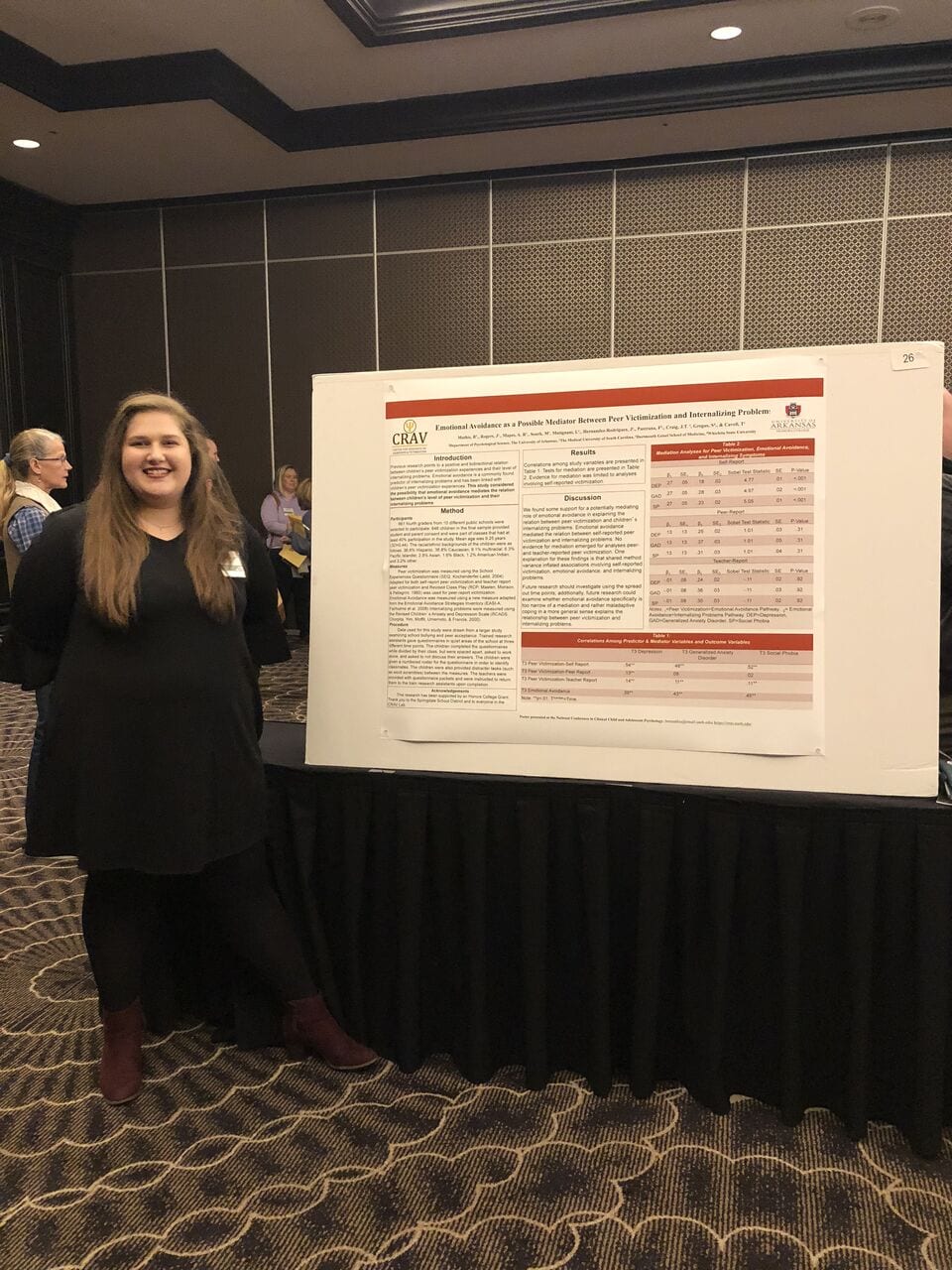Honors psychology major Bailey Mathis recently presented a poster on her honors thesis research at the National Conference for Clinical Child and Adolescent Psychology in Kansas City, Missouri. She encourages all students to attend a conference in their chosen field — for Bailey, not only was the feedback she received on her work transformative, but the invaluable practice in explaining her research to other professionals fueled her confidence in and enthusiasm for her project.
I recently had the privilege of presenting my honors thesis research in Kansas City at the National Conference for Clinical Child and Adolescent Psychology. The basic breakdown of my study was to look at emotional avoidance as a possible mediator between peer victimization and the internalization of problems. In simpler terms, we know that kids who get bullied by their peers tend to develop issues such as anxiety, depression and social phobia, and I looked to see if emotional avoidance, which is a maladaptive coping mechanism, explained that relationship. Understanding the entire relationship could help us form more productive intervention strategies to help kids who are being victimized or who have been victimized.
The conference turned out to be a crash course in “how to defend your research,” which is exactly what I needed. While I stood next to my poster and answered questions, I had my knowledge base tested, I had to defend the analyses I chose and I was inclined for the first time to think about the “right now” applications of my research. Since it was a clinical conference there were many practicing clinicians who would ask, “what does this mean for my client?” For the first time in my undergraduate career I was asked to look beyond research toward what it means for people doing the job I someday hope to do. Not to mention I got a chance to meet with people out there working in the field, and hear about what they do. I learned about what emotional avoidance actually looks like in clients. I learned that practically speaking, it’s much easier to intervene in ways that prevent bad outcomes for victimized kids than it is to prevent a kid from being victimized again. Beyond being a great networking opportunity, it was enlightening and clarifying to talk to the people who work in this field for a living. Additionally, I got to hear talks from leading experts in the field on cutting-edge peer victimization research, opening my eyes to all the questions I never thought to ask. I came back with at least a dozen possible thesis topics I wish I had the time to explore next.
My biggest suggestion for any student considering attending a conference in their field is: go for it! Go to two or even three! I wish I had the time to attend them all. It’s like getting a crash course in a topic, not to mention the names you see at the top of prominent research papers are suddenly in front of you answering your questions, and sometimes even asking you questions! It is both humbling and confidence-boosting, but more than anything it is a great way to see if the field you have chosen is the right field for you
While I wish I could write another thesis or two, and attend more conferences, I guess I will settle for settling into this field for the rest of my career instead. Because the best part about pursuing research as a career is that there is always another question to ask.

